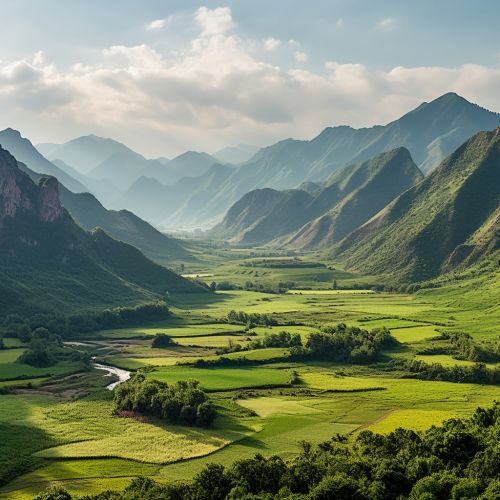Azerbaijan
Geography
Azerbaijan is located in the South Caucasus region of Eurasia, straddling Western Asia and Eastern Europe. It lies between latitudes 38° and 42° N, and longitudes 44° and 51° E. The total length of Azerbaijan's land borders is 2,648 km (1,645 mi), of which 1,007 kilometers are with Armenia, 756 kilometers with Iran, 480 kilometers with Georgia, 390 kilometers with Russia, and 15 kilometers with Turkey. The coastline stretches for 800 km (497 mi), and the length of the widest area of the Azerbaijani section of the Caspian Sea is 456 km (283 mi).


History
The history of Azerbaijan covers the period from the earliest known evidence of human presence in the area, the Azykh Cave, to the present day. The region was a part of the larger historical regions of Media, Albania, Atropatene, and Adarbayjan, and is believed to be the birthplace of Zoroastrianism. The country was incorporated into the Sasanian Empire, followed by the Muslim conquest of Persia in the 7th century. Azerbaijan was later ruled by various dynasties, including the Seljuks and the Mongols. The region came under the control of the Russian Empire in the 19th century, and later became a part of the Soviet Union, before gaining independence in 1991.
Politics
Azerbaijan is a unitary semi-presidential republic. The President of Azerbaijan is the head of state, and the Prime Minister of Azerbaijan is the head of government. The president is elected for a seven-year term by direct elections, and the prime minister is appointed by the president. The National Assembly of Azerbaijan (Milli Məclis) is the legislative branch of the government and is unicameral, with 125 deputies elected for a five-year term.
Economy
Azerbaijan has a mixed economy, with a large public sector accounting for about 40% of GDP. The country is one of the world's leading producers of oil and natural gas, and its economic growth has been driven largely by energy exports. The non-energy sector, including agriculture, manufacturing, and services, also plays a significant role in the economy. Azerbaijan is also a major exporter of cotton, fruits, vegetables, and wine.
Culture
Azerbaijani culture is a blend of Persian, Turkish, and Russian influences, with unique Azerbaijani elements. The country has a rich tradition of literature, music, and visual arts. Azerbaijani music is based on the modal system of mugham, and the country is known for its folk dances, such as the lezginka. Azerbaijan also has a strong tradition of carpet weaving, and its carpets are renowned for their intricate designs and vibrant colors.
